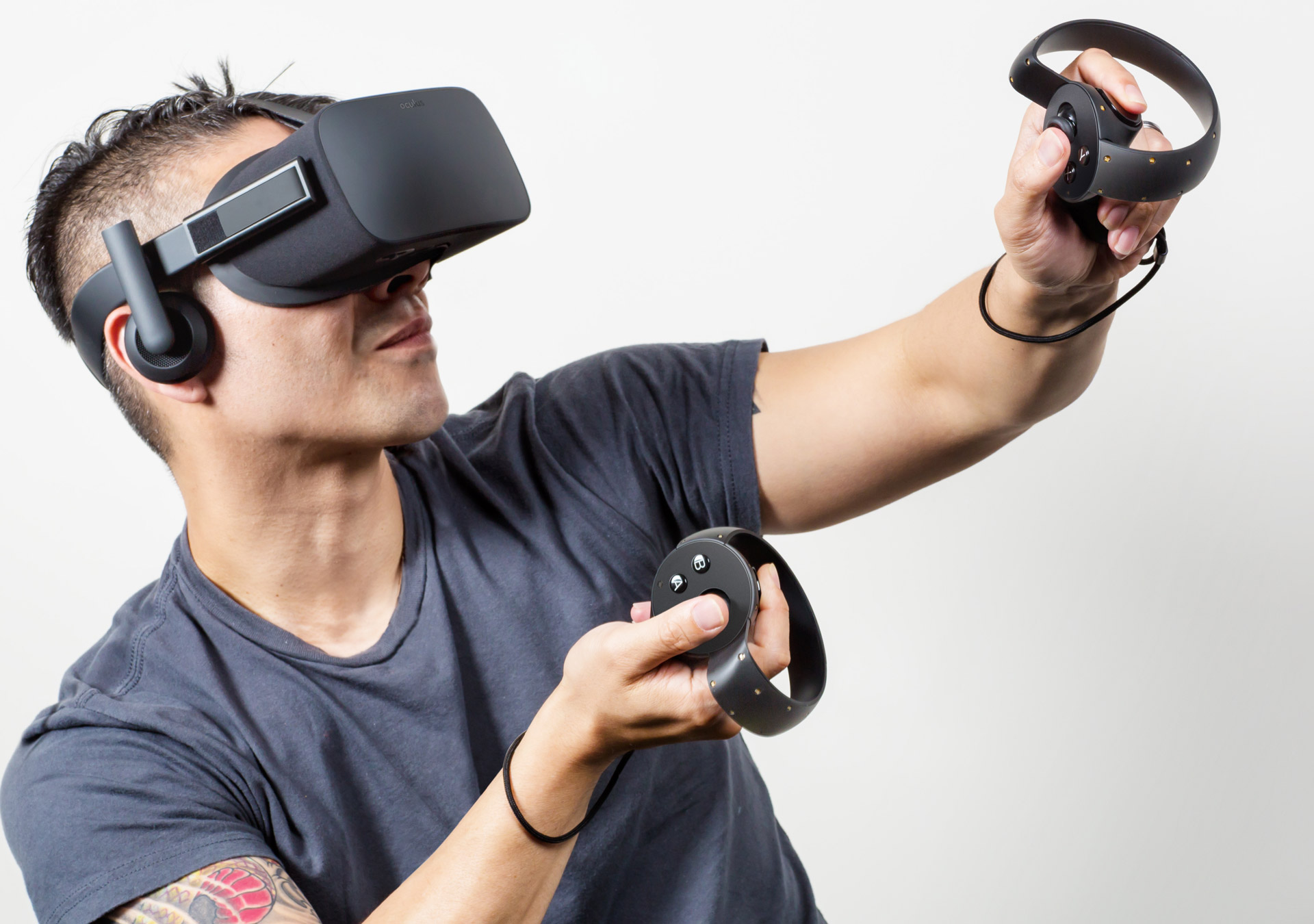Oculus says that they’ll be opening up their ‘Constellation’ tracking API so that third-parties can use the tech to build positionally tracked peripherals beyond what the company will make themselves.
At E3 2015, Oculus founder Palmer Luckey told us that he believes the company’s Touch controller is “making the right set of compromises and tradeoffs to make a pretty universal VR input.” He does note however that “it’s never going to be better than truly optimized VR input for every game. For example, racing games: it’s always going to be a steering wheel. For a sword fighting game, you’re going to have some type of sword controller. For things that are really about fine-grain finger interactions, it’s probably going to be maybe even some type of glove or computer-vision based hand tracking solution.”
See Also: Reverse Engineering the Oculus Rift DK2 Provides Brilliant Insight into Inner Workings
Luckey said the company won’t be making Wiimote-style docking peripherals for those purposes, but there will be a way for people to get their hands on niche VR controllers.
“…we’re going to be opening up our tracking API for people so then they’ll be able to make peripherals that are tracked using our tracking system,” he said. “I think you’re going to see people making peripherals that are specifically made for particular types of games, like whether they’re steering wheels, flight sticks, or swords, or gun controllers in VR.”
It may have been the plan for Oculus all along, but we heard little about third-party access to the company’s IR-LED based ‘Constellation’ tracking system prior to mounting pressure from competitor Valve. At GDC 2015 in March, Valve revealed its SteamVR virtual reality system including the Laser-based ‘Lighthouse’ tracking solution which afforded what they called a ‘room-scale’ tracking volume of about 15×12 feet. The company also said “we’re gonna just give [Lighthouse technology] away,” with the hopes of promoting a universal tracking solution for VR.
See Also: Oculus Demonstrates Their Own ‘Room-scale’ Tracking Capability at E3 2015
Details about how Oculus will open their Constellation tracking API are thin on the ground (and same with Lighthouse for that matter). It isn’t clear for either company’s solution if third-parties will need to purchase tracking markers, license the tech for use, or be charged an integration fee, among a number of potential business models. Nor is it clear if any sort of certification framework will exist to give consumers confidence that a third-party peripheral will work adequately.
The tracking tech question could play a major role in which headset leads adoption; if one of the two companies has a bigger and better lineup of tracked third-party accessories, it could tip the scales of the headset purchase for some consumers. We expect to learn more about both companies’ plans as their respective headsets approach launch beginning at the end of 2015 with Valve’s HTC Vive.
The post Oculus to Open ‘Constellation’ Positional Tracking API to Third-parties appeared first on Road to VR.
